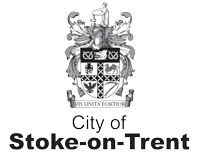Health and social care
Health
Health teams and services for both physical and mental health, form part of the graduated offer to support children and young people with additional needs. Sometimes those additional needs are part of their SEN. Sometimes they are not related to their SEN needs but require schools to have the information to manage medical needs safely. However, in all cases health professionals will endeavour to work with their education partners to improve outcomes for children and young people holistically.
These pages should be read in conjunction with the social care and health landing pages on the Local offer website. Health and social care – SEND Local Offer
Health also has its graduated approach sometimes also known as the Thrive Model within which the principles of the graduated approach assess, plan, do, review is also embedded. Services meet need according to the level on the Thrive model the childs needs are and the level of care they have been commissioned to provide. They may be commissioned to address whole school approaches and lower-level needs such as Mental Health in schools or they may have been commissioned to meet higher end risk needs such as Camhs specialist services, hence why they have eligibility criteria.
Some services are better referred to direct by schools and those services have pathways for schools such as SLT, ASD – as you will always know the children better than their GP. Other services do need referral via the GP or other clinical staff e.g physiotherapy.
In each of the four areas of need health professionals have contributed their information and resources that assist school in those early stages to identify and meet need such as SLT, before if needed there is an onwards referral into the service. Services also detail their training offers to assist staff feel knowledgeable and competent in those early steps.
Many of health pathways of care are very much about assessing and then giving information and empowering families and professionals to continue the care required. They may discharge children once certain criteria have been met with a view children can be re referred if needed – and discharge information should make clear the criteria according to that service.
If you need assistance to better understand the service offers or to discuss a child with the service, then please use the given contact email and telephone numbers on the local offer for each service.
You may find it helpful to form your own locality directory of links and key professionals, so you have them to hand remembering it is the Local offer websites where up to date contact information is stored.
Once a child is in the statutory EHCNA pathway reports will be provided by teams and they will also participate in Annual reviews and updated reports. Please be sure to give them plenty of notice (6-8 weeks) of annual reviews.
One of our children is showing signs of difficulty – what can I check with parents regarding health?
Has parent got any concerns and if so has the 0-19 service been contacted for advice? Is there anything significant in their history regarding health that could be impacting them? Do you understand how any health difficulties may impact the child during the school day?
Have they had their hearing vision and dental checks recently? If not, then advise parents to have those checks booked in.
Do you know what the child’s 24-hour day looks like:
- Sleeping
- Eating and drinking - is it a good diet?
- Exercise and activities
How might those be affecting them regarding their mood ability to focus and concentrate? Is there a need for some advice from 0-19 or family hubs if those are not as expected for a child of their age, or some PHSe work?
Where can I go for advice and discussions regarding mental health?
Schools’ mental health lead, Mental health in schools practitioner, or Combined Wellbeing portal and Single point of access.
Who in health may be involved with a child?
The parent should always know and we would always advise parents to notify schools if their child has any health difficulties and is being referred to a specialist. That way you can understand if there needs to be an individual health care plan drawn up to keep the child safe in school.
I don’t understand why health have reached the decision they have what can I do?
Look up the teams contact details and ring or email through a query and have a discussion so you can understand rationale and present your concerns as a professional.
Should I send children to Gp’s for everything health?
No not necessarily. The GP may not be the best person and it may delay referrals when pathways have been set up so those who know the child best makes a full referral e.g ASD, SLT. Also it may be routine and something 0-19 or family hubs are better placed to give up to date advice. If a child is unwell families should use the NHS website, 111 and follow advice as usual.
Resources
- Two Year Health Check
- Breastfeeding and Bottle Feeding
- Young Minds
- Children and Young Adults
- Tiny Happy People
- Sexual Health
- Children and Young People
- SCDAS
- Drug Addiction: Getting Help
- North Staffordshire Community Drug and Alcohol Service (SCDAS)
- Health Visiting and School Nursing
- Combined Wellbeing

